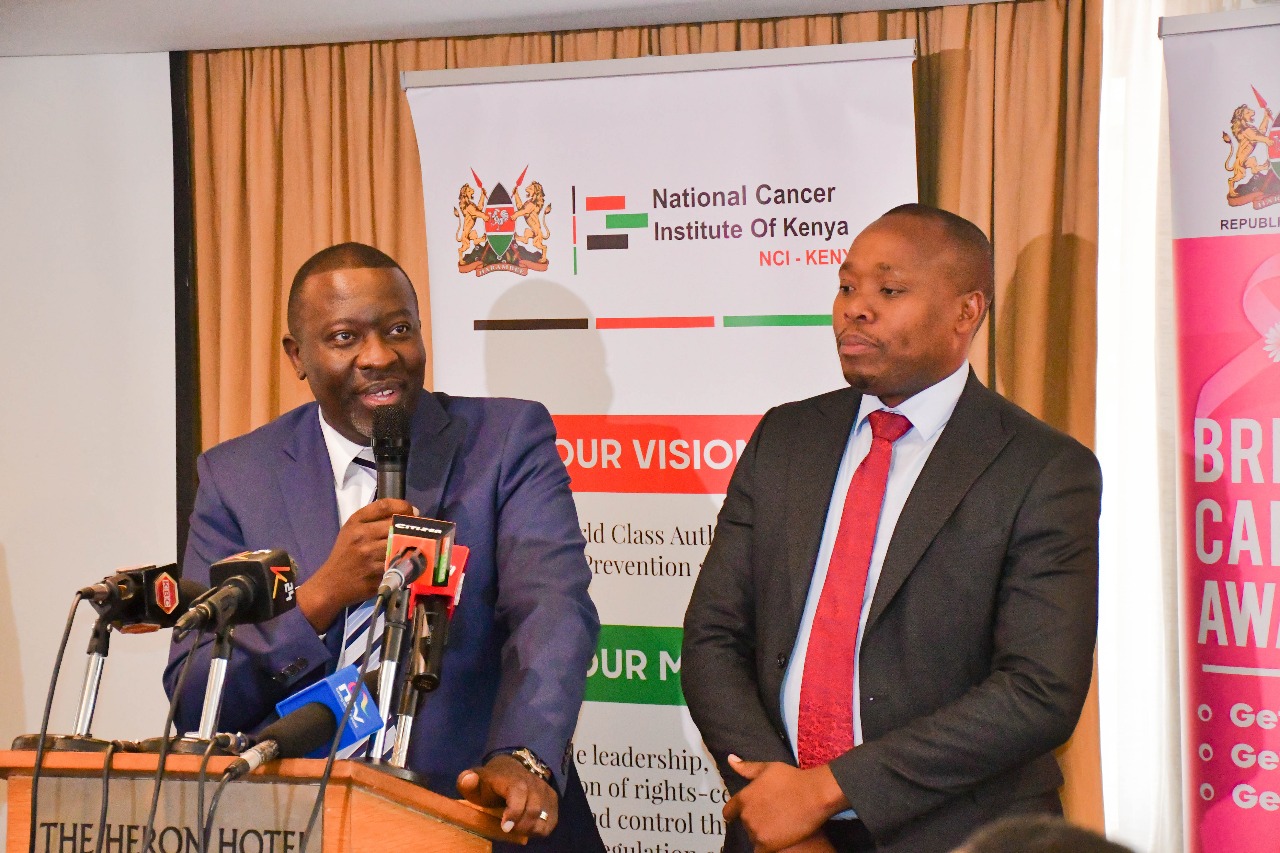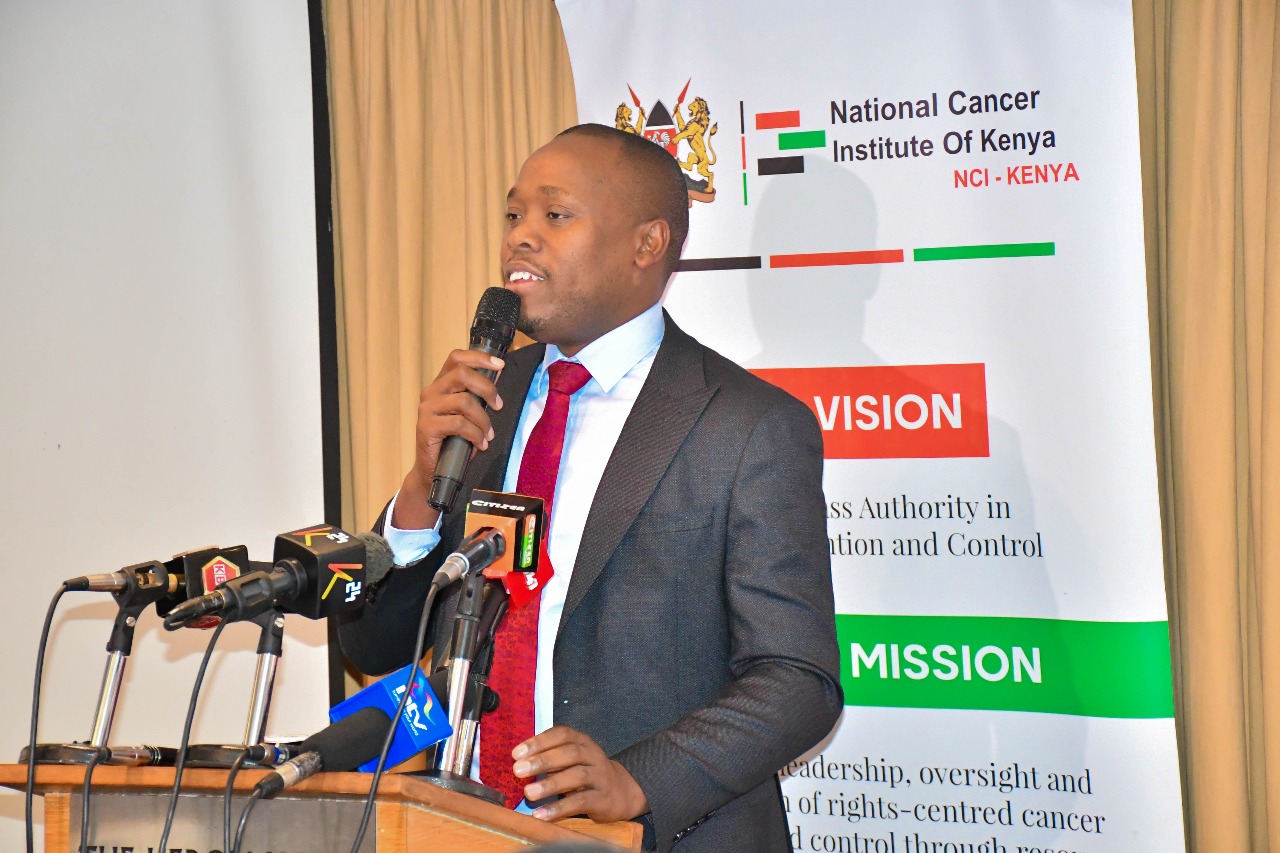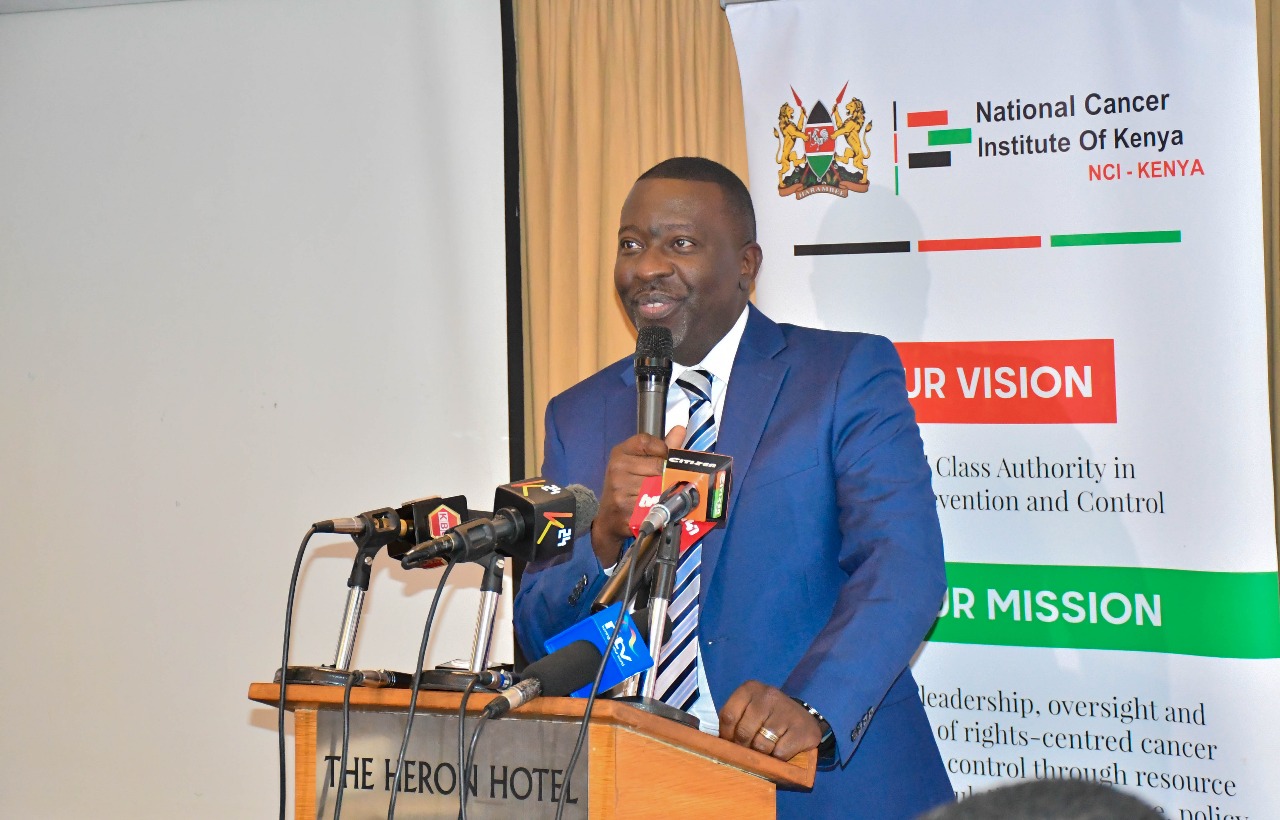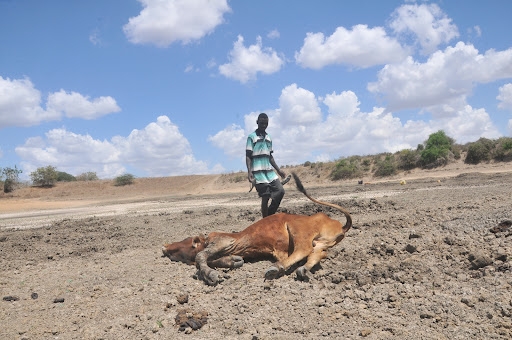
Dr. Elias Melly, Chief Executive Officer of The National Cancer Institute of Kenya, with Dr. Timothy Olweny, Board Chair at the National Cancer Institute of Kenya/ HANDOUT
With over 44,000 new cases and nearly 29,000 deaths each year, cancer has become Kenya’s second leading cause of death from non-communicable diseases.
Now, health leaders are calling for unity, action, and innovation to turn the tide.
Ahead of the Second National Cancer Summit, set for July 27–30, the National Cancer Institute of Kenya (NCI-K) on Thursday hosted a media breakfast briefing at The Edge Convention Centre in South C.
The summit, themed “Uniting Our Voices and Taking Action”, will bring together policymakers, health professionals, researchers, survivors, and advocates to assess progress, share innovations, and strengthen partnerships in the fight against the disease.
“This theme is more than a slogan, it’s a call to collective responsibility,” said Linet Koskei, Head of Information, Education, and Communication at NCI-K.
“Cancer is not a fight for one institution or one voice. You, our media allies, are not just observers; you’re educators and mobilizers. You have the power to turn data into dialogue and statistics into stories that move people.”
Koskei described the upcoming summit as a crucial platform where leaders from health, research, academia, civil society, and media will converge to reflect, strategise, and take action.

Dr. Elias Melly, CEO of NCI-K, outlined the agency’s mission and progress in strengthening cancer care systems across Kenya.
“NCI-K was established with one mission, to reduce the burden of cancer in our country,” he said.
“With over 44,000 new cases and 29,000 deaths annually, cancer remains a pressing national crisis.”
He noted that cancer care is now integrated across all levels of the health system, with emphasis on prevention and financial risk protection.
The government has rolled out HPV vaccination programs and promoted healthier lifestyles to curb risk factors like tobacco and alcohol use.
“No Kenyan should be denied treatment because of cost,” said Dr. Melly.
“With support from the Social Health Authority, patients now have access to a comprehensive oncology benefits package. This is a major step toward making cancer care both accessible and affordable.”
Dr. Timothy Olweny, Chair of NCI-K’s board, echoed calls for collaboration and underscored the heavy toll cancer takes on Kenyan families.
“When we talk about deaths in the tens of thousands—and that might even be an underestimation- it means cancer is a serious national issue,” he said.
“It’s not just about morbidity and mortality. It’s about livelihoods lost, savings wiped out, families going into debt, and the emotional toll on entire households.”
 Dr. Timothy Olweny, Board Chair at the National Cancer Institute of Kenya/ HANDOUT
Dr. Timothy Olweny, Board Chair at the National Cancer Institute of Kenya/ HANDOUTDr. Olweny stressed the importance of improving access to quality cancer care as part of Kenya’s broader Universal Health Coverage (UHC) goals.
He pointed to barriers such as poverty, distance to facilities, and cultural beliefs that prevent many from seeking timely diagnosis and treatment.
“Our mandate is not just about access—it’s about quality,” he said.
“No matter where someone seeks care, it must be standardised. And we must ensure financial protection so no one is forced to sell assets or sink into poverty to survive cancer.”
He called for stronger coordination across sectors to avoid duplication, fill gaps in care, and ensure no Kenyan is left behind.
Mercy Osoro, a lymphoma cancer survivor celebrating 20 years of survivorship, shared her journey as a beacon of hope.
“I’m not only standing here as a survivor, I’ve walked a very tough journey,” she said.
“When people see that I’ve survived for 20 years, they find the hope to keep going. That’s why we, as survivors, raise our voices for advocacy, for hope, and to walk with others.”
Mercy, an advocate for childhood cancer awareness and patient navigation, urged stakeholders to prioritise psychosocial support in treatment facilities.
“A patient should never walk the journey alone,” she said.
“Patient navigators make a huge difference. And to the media, we thank you for sharing our stories—because when people hear them, they find the strength to seek treatment and carry on.”
The Second National Cancer Summit promises to be a national platform for collaboration, accountability, and innovation—uniting policymakers, health workers, survivors, and communities in one shared goal: defeating cancer.














